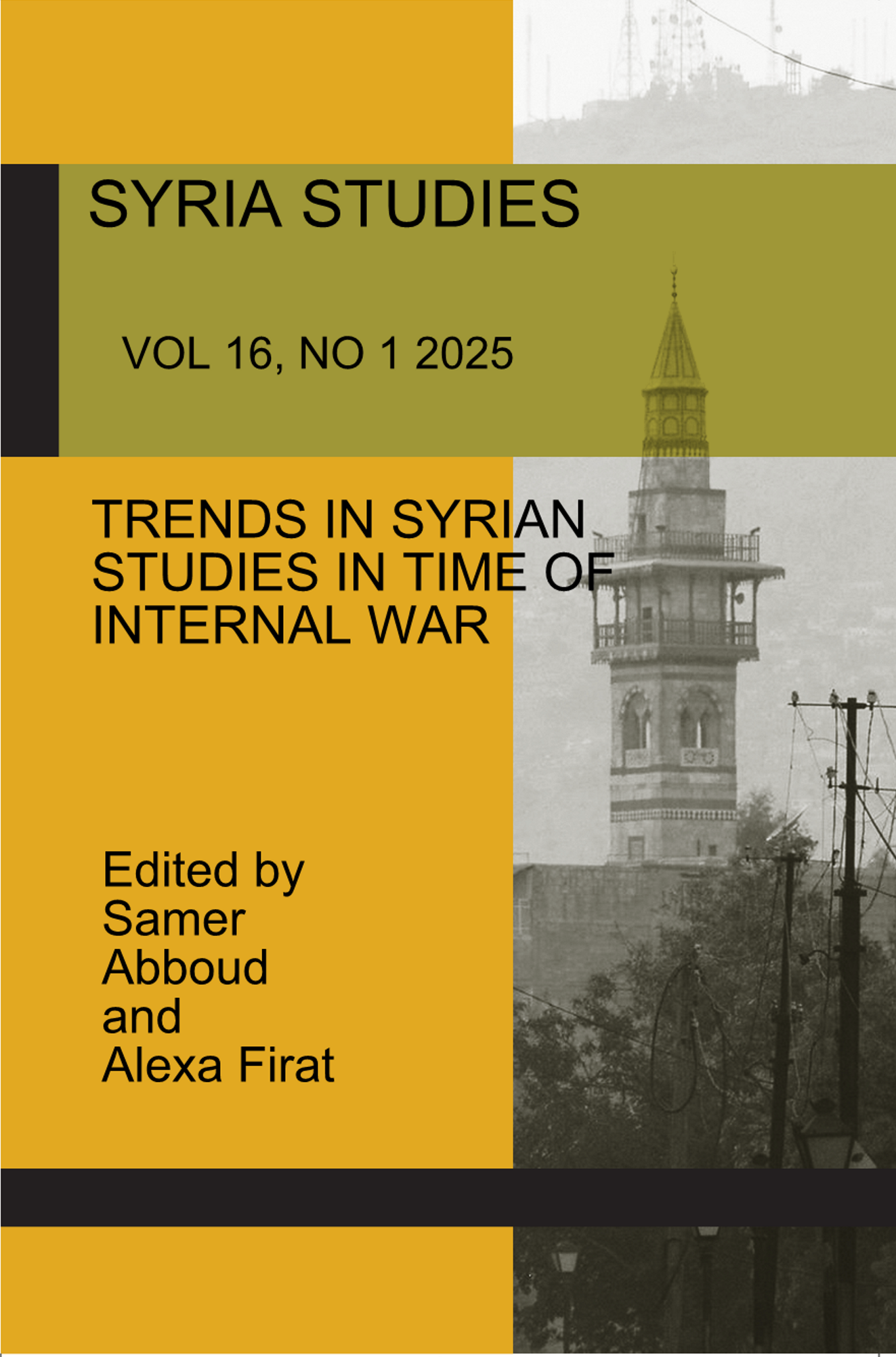Syrian Studies through the lens of Strategic Studies
Main Article Content
Abstract
This reflective essay examines the intellectual, methodological, and ethical challenges of conducting military-focused research on Syria during and after the Arab Spring. Drawing from personal experience and scholarly inquiry, the piece interrogates how authoritarian secrecy, conflict-driven instability, and the opacity of military institutions profoundly shaped the trajectory of the author’s research over nearly a decade. What began as a comparative analysis of military behavior in Syria, Egypt, and Tunisia evolved into a deeper engagement with interdisciplinary methods and virtual ethnography, necessitated by restricted access to primary sources, fieldwork, and firsthand testimony. The paper traces the evolution of the author’s research questions, theoretical frameworks, and methodological adaptations in response to censorship, propaganda, and political risk. It also introduces the concept of the efficient military—an alternative to Huntington’s professional model—emerging from these constraints. Ultimately, the essay contributes to Syrian Studies by foregrounding the complexities of knowledge production under authoritarianism and the critical need for reflexivity, creativity, and resilience in researching institutions of power in closed regimes
Article Details

This work is licensed under a Creative Commons Attribution 4.0 International License.
Authors who publish with this journal agree to the following terms:- Authors retain copyright and grant the journal right of first publication with the work simultaneously licensed under a Creative Commons Attribution License that allows others to share the work with an acknowledgement of the work's authorship and initial publication in this journal.
- Authors are able to enter into separate, additional contractual arrangements for the non-exclusive distribution of the journal's published version of the work (e.g., post it to an institutional repository or publish it in a book), with an acknowledgement of its initial publication in this journal.
- Authors are permitted and encouraged to post their work online (e.g., in institutional repositories or on their website) prior to and during the submission process, as it can lead to productive exchanges, as well as earlier and greater citation of published work (See The Effect of Open Access).
